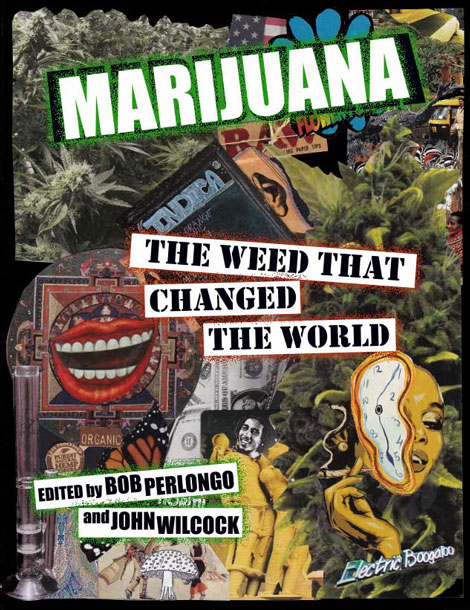
The Column of Lasting Insignificance: March 1, 2014
by John Wilcock
“The US is a collapsing empire. Key institutions like the educational system, are in free-fall and most remaining vestiges of democracy are being stripped away. There’s much more anger, I think, but also more outright repression.”
— David Graeber, economics professor and Occupy Wall Street activist, talking to the New Internationalist
THERE’S A LOT OF fussing and cussin’ in financial circles, about a book about to be published this month. What’s got everybody agitated is Capital in the 21st Century by Thomas Piketty, a professor at the Paris School of Economics. The book has already been published in France where it was described by one French newspaper as “a political and theoretical bulldozer,” and might explode here. But unquestionably it is an arcane and difficult text for the lay reader to get into. A prudent analysis of data from twenty countries, from the 18th to 21st centuries, Capital is predicted to “transform debate and set the agenda for the next generation of thought about wealth and inequality.”
One of its earliest explicators has been the political blogger Kevin Drum whose writings for the Washington Post and Mother Jones have often focused on oil supplies. “Piketty says it is the wealth-to-income ratio that drives inequality,” Drum explains. And, after attending a lecture given by the latter in Helsinki, he summarized some of the main points:
- Inequality is driven by wealth and a society in which the return on wealth makes people richer — rather than wealth getting taxed or stolen or bombed or consumed away — will be one with an unequal distribution of what wealth there is. One consequence is that “unequal wealth poisons politics and creates a powerful class interested in making sure that multiplicative wealth dynamics persist.”
- As growth rates decline in the Old World (Europe and Japan), we note the dominance of capital: a greater proportion of the wealth of society will be held in the form of physical and other non-human-skill assets, and inheritance and position will matter more and individual effort and luck less.
- The ideal solution? Progressive global-scale wealth taxes. It would have to be global in order to prevent (among other things) the transfer of assets to countries without such levies.
Writing in the New York Times, Thomas B. Edsall wrote that capitalism, according to Piketty, confronts both modern and modernizing countries with a dilemma: entrepreneurs become increasingly dominant over those who own only their own labor. And while emerging economies can defeat this logic in the near term, in the long run, “when pay setters set their own pay, there’s no limit,” unless “confiscatory tax rates” are imposed.
Sadly, the imposition of such a global wealth tax is “unfeasible,” Edsall suggests, describing as “extremely bleak” the Piketty prognosis. “Without what he acknowledges is a politically unrealistic global wealth tax, he sees the United States and the developed world on a path toward a degree of inequality that will reach levels likely to cause severe social disruption.”
Some people might see the word for that could be revolution.
PROFESSOR DUMPSTER is what he calls himself. He’s a real professor, Jeff Wilson, and it’s a real dumpster that he’ll be living in for the next year, in a demonstration of what he claims will be a demonstration of “sustainable living.” The Spartan-like prof sold all his possessions and moved into the 6x6ft green garbage box last month. “Can you have a pretty good life living in one percent the size of the average new American home, on one percent the water and one percent the energy, with one percent the waste?” was the rhetorical question he posed to his students at Austin’s

Huston-Tilotson University. They’ll help the biological sciences professor to carry buckets of water up the hill from the town lake, try to figure how to offer WiFi through a metal box, and take note of his progress. He’ll take showers in the university gym, endure temperatures up to 100 degrees in summer, below freezing in winter, and scrunch up in a sleeping bag folding his 6ft 1″ body. “I’ll have to sleep diagonal,” he explains.
DISSOLVE CONGRESS is the headline to a Harper’s story which more or less urges that we get rid of the whole worthless lot of them, and start afresh. Millions of people must think that’s a great idea; if only it were possible. “What America needs is a revolution like the one the French had in 1789 when they stormed the Bastille,” writes essayist Jean-Philippe Immarigeon, who admits that “there is nothing more tiresome to an American than to be lectured by a Frenchman.” But, he says, it happens that the nation of Lafayette “possesses a curious loophole that might stop the United States from making a fool of itself.” What it is, he explains, is a parliamentary device which authorizes the president to call for new elections — for everybody — instead of making the voters wait a year or two, an eternity in the Internet age and a period in which the American public are no longer in charge. Offering “a cure for constitutional crisis,” Immarigeon points to the year 2007 when 70% of Americans favored getting all troops out of Iraq but were ignored.
Most democratic nations have aligned themselves with the Anglo-French model, he writes, which is more modern, more efficient, and maybe even more democratic, but the U.S. has forbidden adaptation. Offering “a cure for constitutional crisis,”, he adds; “America needs to lower the curtain on this institutional tragic-comedy and change its constitution before the system breaks for good.”
WHAT’S NOT TO LIKE about a program that offers and fills eight million jobs in everything from simple construction — road and bridge creation — to literature and the arts? Many libraries still have on their back shelves regional guides produced by the program; most communities can point to public buildings or parks that were built and paid for by a government that once had the sense to spend its money on people, not propping up ineptly run banks. Of course, as older readers know, we’re talking about the imaginative Works Progress Administration (WPA) which created millions of jobs between 1935 and 1943, at a total cost of $13.4bn, between 10 and 30% of it kicked in by state and local governments. So why couldn’t WPA be repeated today? Apparently, we could afford to give the banks $4.6 trillion.
BY THE TIME Alex Ferguson quit managing Manchester United last year, after 27 years on the job, the team was and still is the most popular and successful in the world. Now he’s a cover story in the New Statesman and has been described by the BBC as “the greatest living Briton.” The Ferguson formula is not transferable, the mag insists, “because he is a product of a world that is almost extinct.” Short of suggesting that this is a result of social, economic, and political changes, NS doesn’t amplify this further, but it does remind readers of some of the contradictions in the multimillionaire manager’s career which began — the working-class son of a Glasgow shipyard worker — as a union boss and staunch socialist. How could he reconcile his socialist principles with his unwillingness to criticize the (Malcolm) Glazer family, his “rampant capitalist” employers at Manchester United? He was asked on television. His answer is not recorded, but the mag added: “He doesn’t view a desire to be paid what one is worth as ignoble.”
THE WILCOCK WEB: Solar distillation isn’t the only way to get fresh water from the ocean. The ice that forms atop sea water is pure enough to drink. How frustrating that the huge sheet currently covering the Great Lakes can’t be lifted up and dropped onto California’s parched Central Valley….Now Russia’s dictator will forever be known as Pussy Putin….On a roll in Norway is what the state television channel NRK calls “Slow TV” with the most popular recent program — people knitting for hours — was watched by 1.3m viewers….Why do late-night shows have just bland dummies as co-hosts? Oh, scratch that; the answer’s too obvious….Jerry Seinfeld’s ignorantly old-fashioned diatribe about the USPS merely illustrates he’s out of touch with realities… Kazakhstan says it’s bigger and more important than its neighbors and to avoid confusion seeks to drop the ‘stan’ and be known as Kazakh Eli….. Bottles of champagne in Selfridge’s famous Oxford Street store are delivered gingerly from vending machines by a cushioned robotic hand……Only an idiot would regard that two-page New Yorker poem by universally worshipped Anne Carson as pathetic nonsense. So I’ll be the idiot….….“I have not met anyone worth a damn who was not irascible,” declared Ezra Pound….Comparing Google’s $100m gift to its chairman Eric Schmidt with JPMorgan Chase’s $20m for Jamie Dimon, NYTimes columnist Steven M. Davidoff remarked about how different were “the divergent public views on pay” ….Already known as an adulterer and cheat before he married her, Wendy Deng maybe didn’t surprise Rupert Murdoch with allegations about her subsequent affairs with Tony Blair and Eric Schmidt ……Is Texas musician Ted Nugent the most obnoxious man in America?….Ten states have agreed to remove from job applications the question asking prospective employees if they have ever been arrested or accused of a crime, a question described by Jersey City mayor Steven Fulop, as a contemporary “red letter”…..Gluten-free, adopted as a fad by people who don’t need it, will soon pass….Those scratch-’n-sniff perfume ads in magazines may soon start including the aroma of foods, according to the Journal of Consumer Research, reporting on the success of combining pictures with smells of chocolate cake….The cost of a coffee at one Parisian café is €1.40 but rude customers who don’t say ‘please’ are charged €7 ….. Exclusive rights to coffee dispensing in Sochi’s Olympic grounds were awarded to McDonald’s, but NBC has its own secret Starbucks site with baristas from its 60 Moscow outlets serving the network’s 2,500 staffers….“Ninety percent of human wisdom,” declared author Robert A. Heinlein, “is the ability to mind your own business”… That Colonial-era favorite, applejack, is making a comeback reports the Wall Street Journal with farm-based micro-distilleries popping up all over the country….….With Scotland’s vote for independence only seven months away, the results will hinge on whether the small country (pop: 5.3m) can be self-supporting when detached from the rest of Britain…“If at first, an idea is not absurd, there is no hope for it.” — Albert Einstein (1879–1955)
it’s here…

